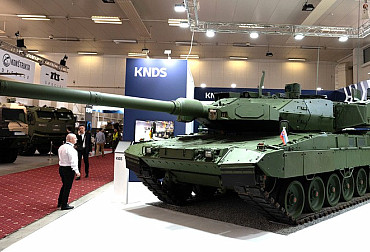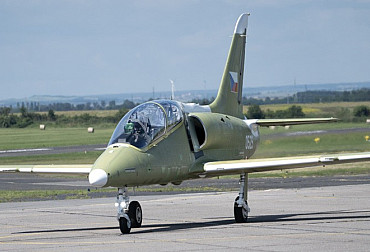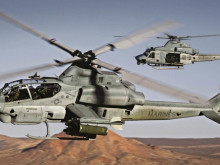Cooperation of soldiers with police officers: 12 hours in the cold on their feet, saving lives and great experience
From the beginning of March to the middle of April, 60 soldiers from the Training Command - Vyškov Military Academy assisted police officers in inspecting vehicles in Prague. One of them was Sergeant Petr Z., who saved life of a citizen during his service in the capital.
Petr Z. has been a professional soldier for almost twenty years. He was a scout with the 4th Rapid Deployment Brigade for ten years, then joined the 7th Mechanized Brigade, where he was, among other things, instructor in a special training course. Since January, he has been serving at the Vyškov Military Academy as a junior instructor in a basic training course, where he passes on experience to newcomers.
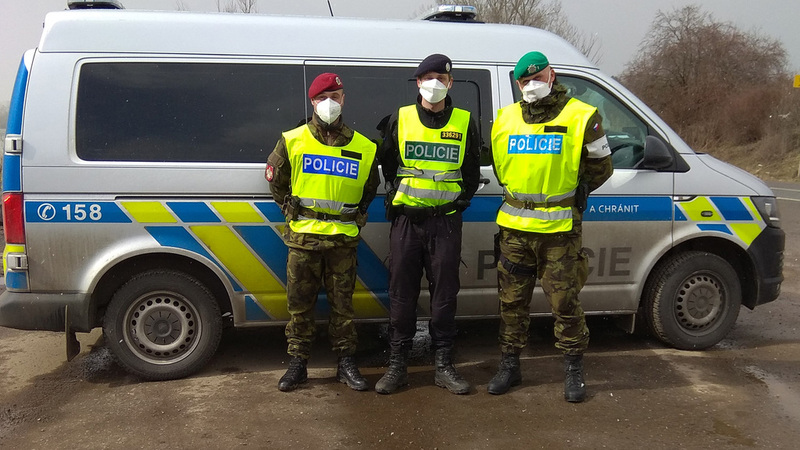 Picture: Mixed patrol at the site | Ministry of Defense of the Czech Republic
Picture: Mixed patrol at the site | Ministry of Defense of the Czech Republic
He learned that he would be helping police officers inspect vehicles shortly before noon on March 1. He was to report to the unit in two hours, packed and ready. "I'm lucky to be used to this military lifestyle. And for the „brnka“ (4th Rapid Deployment Brigade) the rule was that the backpack should be permanently packed for at least three days, so one has already learned it," he says with a smile.
12 hours in the cold on the feet
Petr was on his feet from half past three in the morning, at five o'clock the vehicle inspection began, ending at ten in the evening. Another day off, then service again. And so on and on.
The inspection took place in such a way that Petr stopped the vehicle, the policeman took a picture of the car's registration plate and passed it through the lustration device. Then Petr checked his ID card with the required affirmation and handed the ID card to the police officer. If he didn't like something, he nodded for the driver to wait. Otherwise, Petr was already stopping another car.
"We took turns after about an hour, depending on the weather. When it snowed or rained, even halfway through. We were standing in one place, so I was glad that I could sit in a heated car at least for a while," he recalls.
With few exceptions, the reactions were positive. Petr was surprised at how many people in the capital showed appreciation to the police and soldiers. "They were nice to us, they brought us food and drinks to warm up. Often for hundreds of crowns. One lady brought us a box of sandwiches with the message "Thank you all", buns, gingerbread. It was a really nice encouragement."
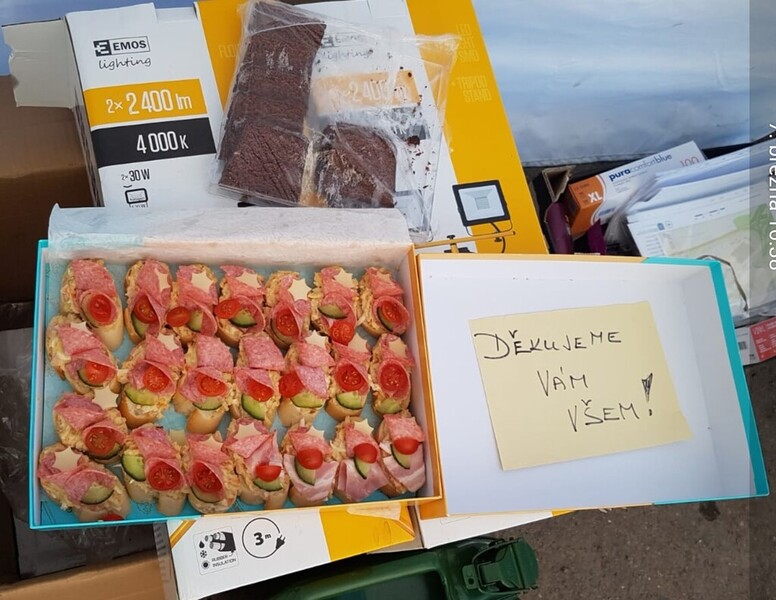 Picture: Homemade mini-sandwiches with the message | Ministry of Defense of the Czech Republic
Picture: Homemade mini-sandwiches with the message | Ministry of Defense of the Czech Republic
Great experience
The service with the police officers clearly enriched Petr. He learned to divide people into responsible drivers and those "not very reliable", who often drove without license, or even under the influence of alcohol and drugs. "I admire the cops," he emphasizes, remembering how the drivers sometimes cursed and argued with them, and they explained and explained with icy calm and a smile on their faces.
According to Petr, the public's idea of the work of police officers is distorted. "They are constantly dealing with an incredible number of incidents, especially in the evening there was one report after another: fights, robberies, shootings. I will really be one of the many soldiers who will stand behind them," he declares.
He saved a life
Having a special Combat Lifesaver military medical course (saving life in combat) pays off for Petr in long terms and he used his knowledge during his service in Prague.
"The man stepped badly on the curb, lost his balance, and fell with his head on the asphalt into the road. Because he was lying partly on the tram tracks, the police stopped the traffic while I assisted the injured," he described the situation. Thanks to the course, he said he knew exactly how he would proceed before getting out of the car. "I am very happy that I can help thanks to the experience from the course and from life," he emphasizes.
Petr treated the injured man and has gained important information from him necessary for the rescue service - he found out what happened, how old he was, what his name was, what his illness was. "The whole conversation went over the radio directly to the doctor in the ambulance, which arrived in a moment," he recalls.
In the first serious accident, everyone gets stuck for a while
Petr has been in a situation where he provided first aid to someone two times. In one case, it was a serious car accident, when the driver flew off the road over a ditch, the car turned with her several times in the air and stopped in the field completely broken. "I confess that when I was in this first accident, I froze for a while. It was a shock. But after a few seconds, I started working," he says. According to Petr, the lady was wedged in such a way that without his help, she would have suffocated. Together with colleagues, they also helped firefighters to unload their equipment. "The intervention commander then told us with a smile that they were surprised how nicely we had lined it up. He even took a picture because it hasn't happened to them yet. He said it was obvious that we were soldiers."
The military has allocated 3,800 troops to help police with the coronavirus epidemic. Their task was to assist in the security controls of stricter anti-epidemic measures.















